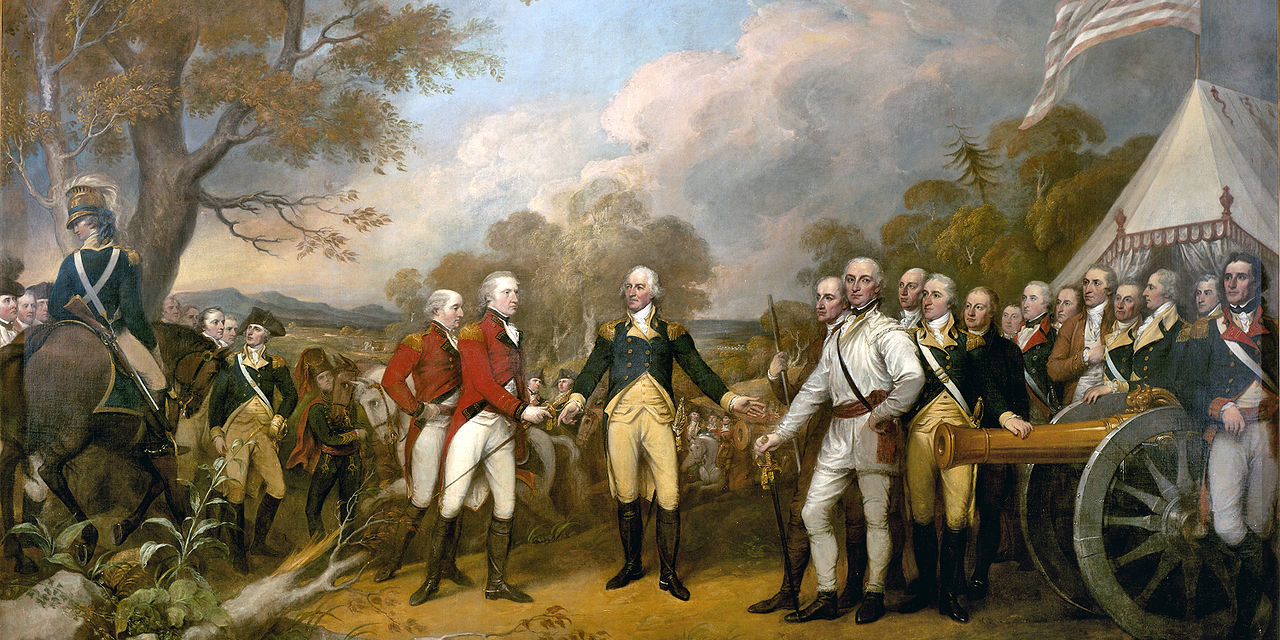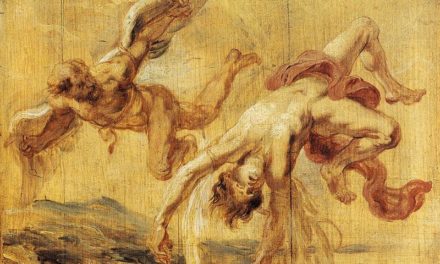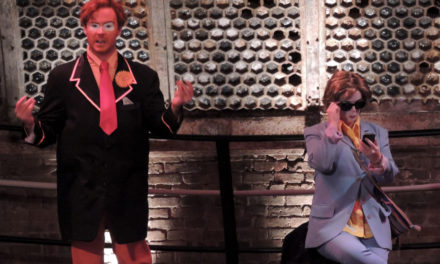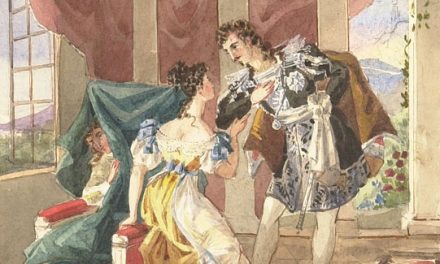On October 17 in 1777, British General John Burgoyne lost the Battle of Saratoga, surrendering over 6000 of his troops to the Continental Army and effectively turning the tide of the American Revolution in favor of the colonists. Many historians consider Burgoyne’s loss at Saratoga the beginning of the end of Great Britain’s effort to contain the growing rebellion, ultimately proving to be the turning point of the war.
Why did he lose and what did theatre have to do with it? Essentially, General Burgoyne was not one to travel light. Like many British officers at the time, he carried a lot of personal baggage with him wherever he went. He was also a renowned amateur thespian. The year before, for instance, during his occupation of Boston, he defied the local ban on theatre to stage shows for his troops–including a production of his own farce, The Blockade of Boston, that was interrupted when American forces attacked the city.
In his 1777 campaign, Burgoyne’s plan was to isolate New England from the southern colonies by attacking New York from Canada, marching south into the Hudson Valley. But his supply train was so weighted down and the terrain so difficult, it gave the Continental troops time to head him off at Saratoga. Among the 500 carts and wagons he hired to supply his army, no fewer than 30 were just for his personal possessions alone–including cases of champagne, his extensive wardrobe, household furniture, his mistress’s possessions (along with his mistress), and most likely scripts, costumes, props and other theatrical supplies he thought he would need once he arrived in New York City to meet up with his colleague and fellow amateur thespian, General William Howe. Howe had already begun setting up a small theatre company in the old John Street Theatre that year in anticipation of Burgoyne’s arrival, eventually performing entire seasons of plays during the extended occupation.
But with his loss at Saratoga, Burgoyne’s military career was over, along with his plans for playing New York. He was immediately sent home in disgrace where he spent the rest of his days writing mediocre plays for the Drury Lane Theatre. Clearly, there were many reasons Burgoyne lost the Battle of Saratoga, but certainly his love of theatre played a vital role.
This post was written by the author in their personal capacity.The opinions expressed in this article are the author’s own and do not reflect the view of The Theatre Times, their staff or collaborators.
This post was written by Peter Davis.
The views expressed here belong to the author and do not necessarily reflect our views and opinions.


















